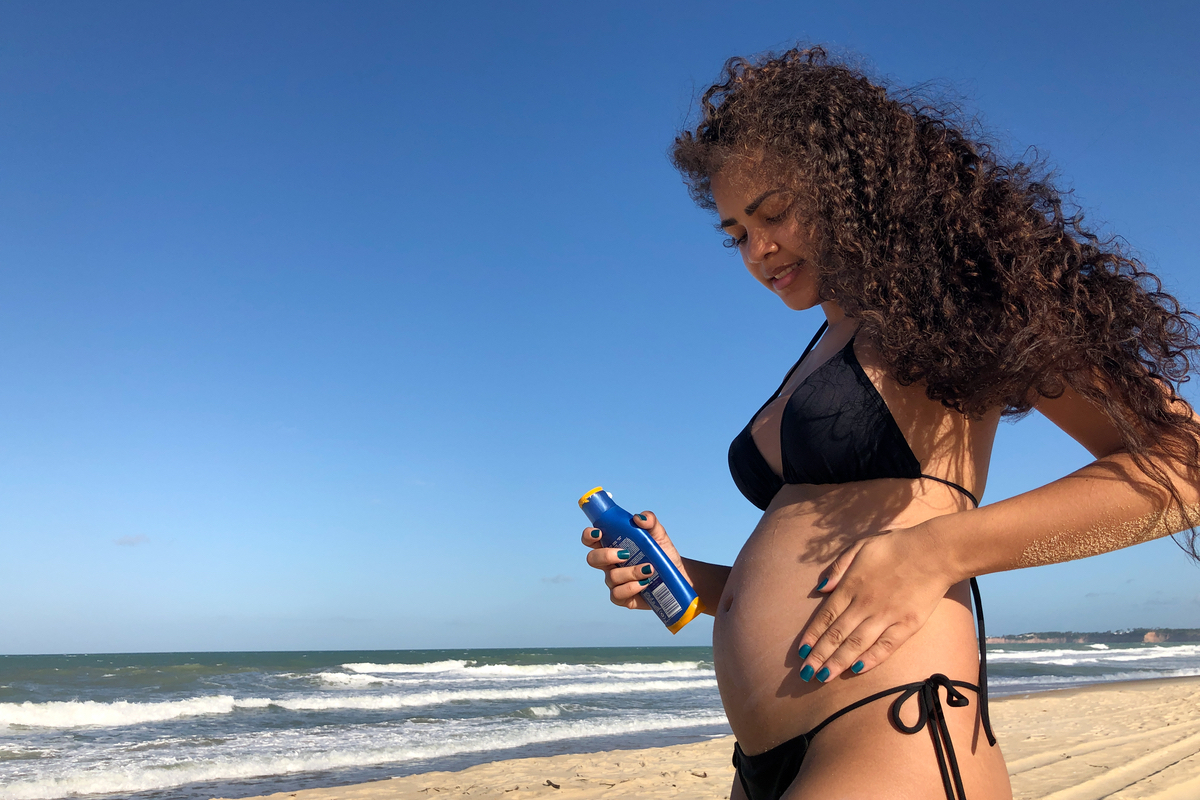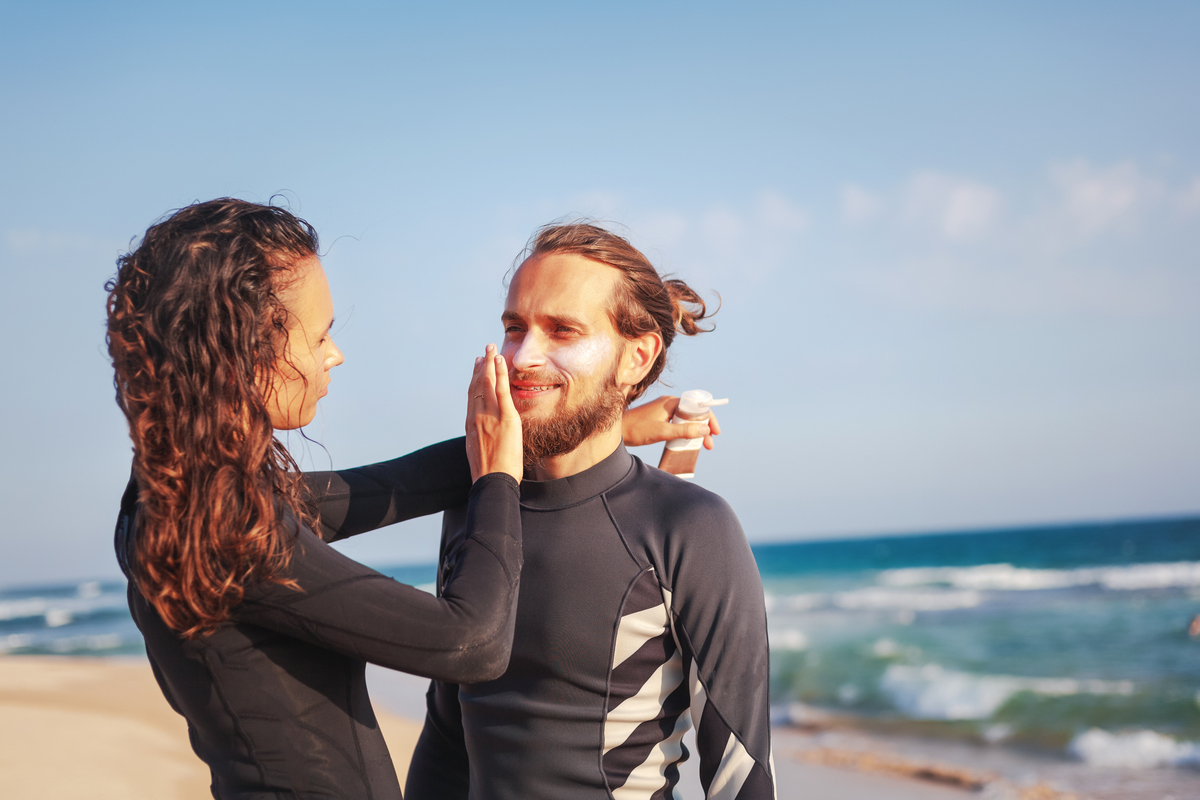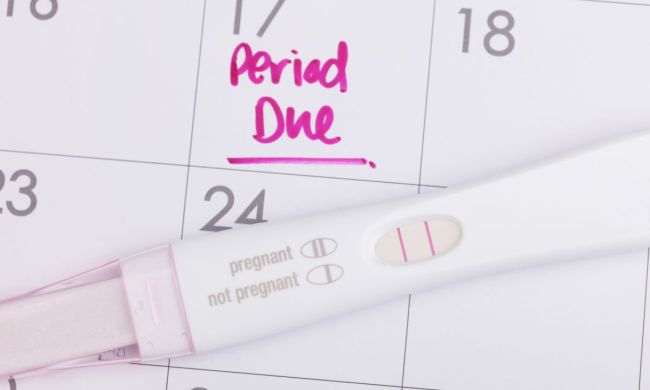
As expectant mothers know, a lot of life’s rules change during pregnancy. But one that doesn’t change is the importance of sunscreen.
If you’re going out in the sun (or the snow, which can reflect and amplify the sun’s rays), sunscreen is just as important when you’re expecting as it ever was. After all, the sun is still shining, right? But now that you’re pregnant, as with other things you’ll have to add a new consideration to your sunscreen equation.
Another reason pregnant women may be interested in sunscreen is its prevention of melasma. Melasma is a skin condition that causes dark, discolored patches of skin, often on the face. It mostly affects pregnant people (even more so for people with darker skin) and does not affect your health, just your appearance. Sun exposure is the cause, and while it can fade away on its own after pregnancy, it doesn’t always, and there is no guaranteed way to make the patches disappear. The best way to avoid it? Sunscreen.
It’s not hard to select the best sunscreen for pregnancy. Just a little foreknowledge can make it simple and painless to switch, even if it means letting go of your preferred brand, if only for a little while.
Sunscreen categories — and which one’s right for pregnancy
Broadly speaking, there are two main types of sunscreen: Mineral and chemical. Chemical blockers absorb into your skin, then absorb UV rays, while physical blockers form a literal barrier on top of your skin that comes between you and the sun.
Dr. Tyler Hollmig, director of dermatologic surgery at University of Texas Dell Medical School in Austin, explains that the difference between the two types is how they go about reducing skin damage: “Chemical sunscreens act almost like a sponge, absorbing UV light, while physical [or mineral] sunscreens act more like a shield, deflecting the sun’s rays.”
The active ingredients typically found in mineral sunscreens, which are also known as physical sunscreens, have been determined by experts to be safe for use by all people. They include:
- Zinc oxide
- Titanium dioxide
Chemical sunscreens are absorbed into the skin. In the large majority of cases, these sunscreens and their ingredients are widely considered safe to use. The only two chemical sunscreen ingredients found to be toxic — PABA and trolamine salicylate — are now illegal in the United States.
While there is no direct evidence that other sunscreen chemicals are unsafe for mother or baby, they are indeed absorbed into the body, and in some cases can be detected in the bloodstream weeks after use. That has led some experts to advise extra caution when pregnant women are looking for sunscreen.
Studies are ongoing into myriad common sunscreen chemicals. Perhaps the most well-known of these chemicals is oxybenzone, which has been known to trigger skin inflammation. This and other chemicals also have been shown to pose a hazard to marine life, with oxybenzone being banned in Hawaii for this reason.
Other sunscreen chemicals for which studies are ongoing include:
- Avobenzone
- Ensulizole
- Octisalate
- Homosalate
- Octocrylene
- Octinoxate
With this in mind, it is understandable that expectant mothers may not want to take chances with a product that will be absorbed into her body and potentially transferred to the fetus.
By contrast, zinc oxide and titanium oxide are both viewed as safe for all people because they are not absorbed into the skin, instead providing a physical barrier on top of the skin that keeps UV rays out.
The best sunscreens for pregnant women
The following physical or mineral-based sunscreens are among the best for expectant mothers looking for peace of mind.
To find the best option for pregnant women, we’ve limited our search to mineral-based sunscreens, in other words, those containing titanium oxide or zinc oxide as an active ingredient. While this type of sunscreen is often associated with whimsical images of blue gunk smeared on the tip of the nose or below the eyes, plenty of mineral sunscreens have advanced beyond that stigma and also include moisturizing and restorative elements.

Trusted by doctors
When in doubt, it’s always a safe bet to look for a product recommended by physicians. In the case of sunscreen, an endorsement from dermatologists (i.e., skin doctors) is particularly meaningful.
In the case of CeraVe 100% Mineral Sunscreen SPF 50 Body Sunscreen with Zinc Oxide & Titanium Dioxide, dermatologists actually helped develop the product, which includes three essential ceramides to help strengthen the skin.
Another example is the EltaMD UV Clear Facial Sunscreen Broad-Spectrum SPF 46 for Sensitive or Acne-Prone Skin that is recommended by dermatologists and uses a zinc oxide formula. In addition to preventing unhealthy sun exposure, this lotion helps calm and protect sensitive skin.
Naturally better
Chemical sunscreens have been implicated for their potentially harmful impact on places as well as people. Interested in protecting the environment as well as your skin? Try the Mineral Sunscreen Lotion SPF 40 from Earth Mama, which contains no chemicals or artificial fragrances (it’s also dermatologist-tested).
For those concerned about the planet and overall purity, look for mineral sunscreens that are “reef safe,” meaning their formulas are developed to prevent harm to coral reefs in popular tourist locations like Australia and Hawaii. The biodegradable formula from Reef Repair SPF 50+ Sunscreen is a perfect example.



